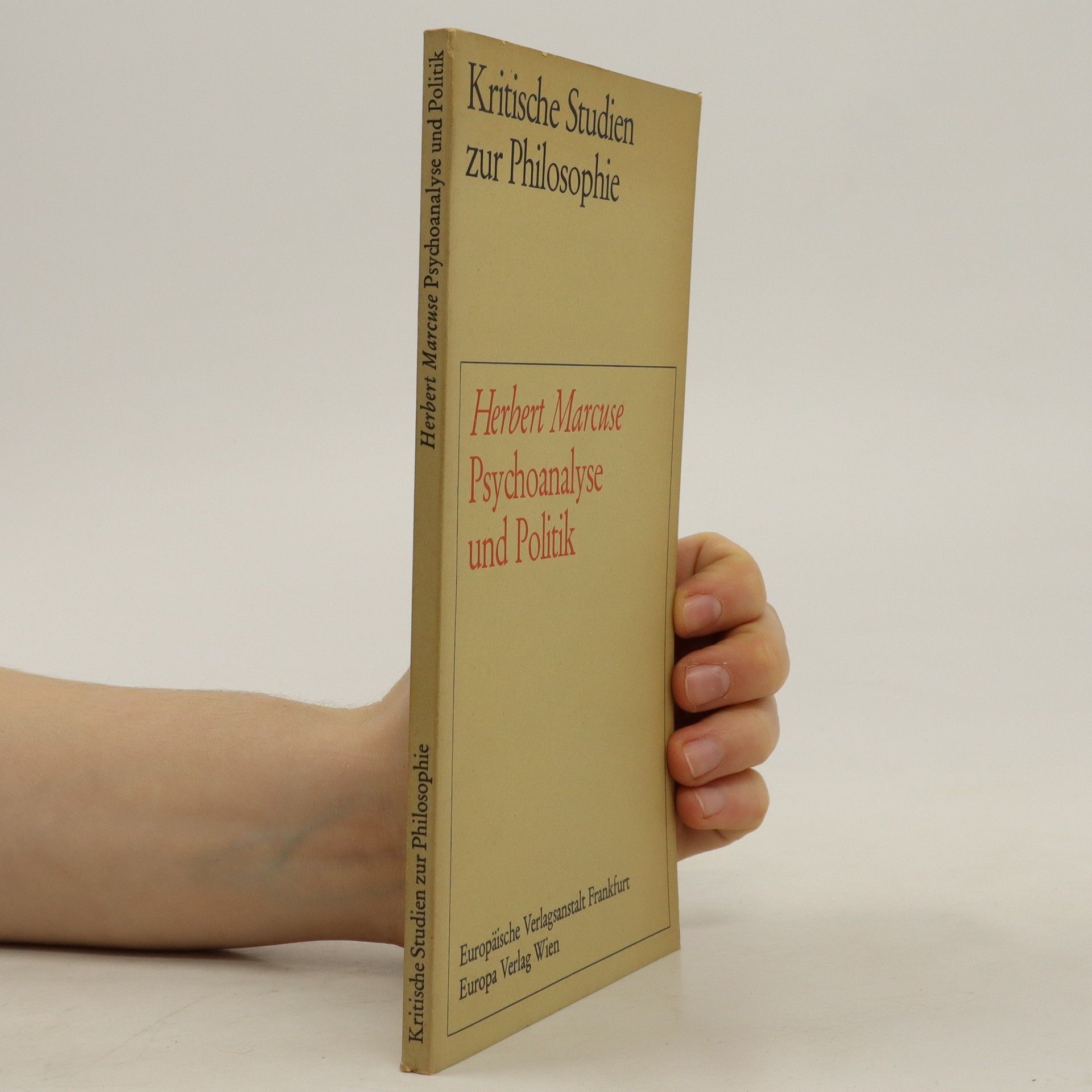Čtenáři se dostává do ruky šest studií Herberta Marcuse, nyní v českém překladu, z nichž nejstarší Nové prameny k založení historického materialismu pochází z roku 1932, nejmladší Represivní tolerance pak byla napsána v roce 1965, ale zásadně rozšířena v roce 1968. Texty reprezentují různé úseky myslitelského vývoje jedné z nejvýraznějších osobností první generace kritické teorie. Reprezentují proměny, kterými Marcuse reagoval na překotně se měnící svět i to, čemu zůstal vždy věrný: Starost o svobodu a štěstí, které nemohou být jedno bez druhého; starosti o svobodu a štěstí, které vycházejí ze skutečné solidarity lidského rodu a nemohou a nesmějí koexistovat s bídou a utrpením kohokoliv jiného.
Herbert Marcuse Knihy
Nemecko-židovský filozof, politický teoretik a sociológ, ktorý bol kľúčovou postavou Frankfurtskej školy. Je oslavovaný ako „Otec Novej ľavice“ a jeho myšlienky hlboko ovplyvnili intelektuálne prúdy a študentské hnutia šesťdesiatych rokov. Vo svojej práci skúmal vzťah medzi potlačením a oslobodením v modernej spoločnosti a analyzoval, ako technológie a industrializácia môžu viesť k novým formám útlaku. Jeho dielo podnecuje k zamysleniu nad kritickým myslením a snahou o dosiahnutie skutočnej slobody.







Marcuseho kniha Jednorozměrný člověk se stala jedním z manifestů studentského hnutí na sklonku 60. let 20. století. Autor v díle dochází k závěru, že moderní přetechnizovaná společnost je sice společností blahobytu, avšak je ve své podstatě silně nemocná. Ve své době tak podává originální kritiku vědy a racionálního myšlení, jejichž pozitivní úloha tehdy zůstávala převážně nezpochybňována. S rostoucím panstvím člověka nad přírodou však roste i panství nad člověkem samotným. Technokratický rozum poukazem na svou úspěšnost nepřipouští žádnou alternativu, žádnou kritiku: člověk se stává jednorozměrným. Hovoří o paralýze kritiky – společnosti bez kritické sebereflexe.
Philosophy, Psychoanalysis and Emancipation
Collected Papers of Herbert Marcuse, Volume 5
- 256 stránok
- 9 hodin čítania
The book features a collection of Marcuse's significant writings, showcasing his distinctive blend of philosophy, psychoanalysis, and critical social theory. It offers a comprehensive introduction by Douglas Kellner, Tyson Lewis, and Clayton Pierce, which contextualizes Marcuse's thought within the major philosophical movements of the twentieth century, highlighting his intellectual contributions and relevance.
Exploring the critique of capitalist modernity, this collection of essays by Herbert Marcuse delves into foundational concepts like liberalism and individualism, challenging their relevance in contemporary society. Written between the 1930s and 1960s, the work showcases Marcuse's materialist dialectical thinking and offers a profound analysis of the conditions shaping thought and action. It serves as an essential resource for emerging scholars and a compelling reminder for those familiar with critical theory, emphasizing the need for a rigorous critique of modern organized life.
The New Left and the 1960s
- 224 stránok
- 8 hodin čítania
Volume III of Herbert Marcuse's Collected Papers focusing on the New Left movement for whom he provided theoretical and political guidance. The new material collected in this and accompanying volumes provides a rich and deep grasp of the era.
Marxism, Revolution and Utopia
Collected Papers of Herbert Marcuse, Volume 6
- 448 stránok
- 16 hodin čítania
The collection features key works by Marcuse, showcasing his responses to traditional Marxist theories on revolution and utopia. It includes a thorough introduction that contextualizes his ideas within the broader landscape of twentieth-century philosophy, highlighting his engagement with significant philosophical movements. This compilation offers insight into Marcuse's unique contributions and critical perspectives on established Marxist thought.
Reason and revolution
- 456 stránok
- 16 hodin čítania
This classic is Marcuse's masterful interpretation of Hegel's philosophy and the influence it had on European political thought. Marcuse brilliantly illuminates the implications of Hegel's ideas with the later developments particularly Marxism.
Towards a Critical Theory of Society
Collected Papers of Herbert Marcuse, Volume 2
- 256 stránok
- 9 hodin čítania
This collection features unpublished manuscripts and letters from the late 1960s and early 1970s, highlighting Marcuse's critical theory of contemporary society. The work is enriched by an introduction from Douglas Kellner and an afterword by Jürgen Habermas, providing valuable insights into Marcuse's ideas and their relevance. The compilation offers a deep exploration of social critique during a transformative period in history.
The book explores the influence of Marcuse on the New Left, highlighting his significance as a theoretical and political guide for a younger generation of activists. It offers new material that deepens the understanding of the era, illustrating Marcuse's role in the key political and theoretical developments of the time. Through this examination, readers gain insight into the complexities of his thought and its impact on the movements of the day.
